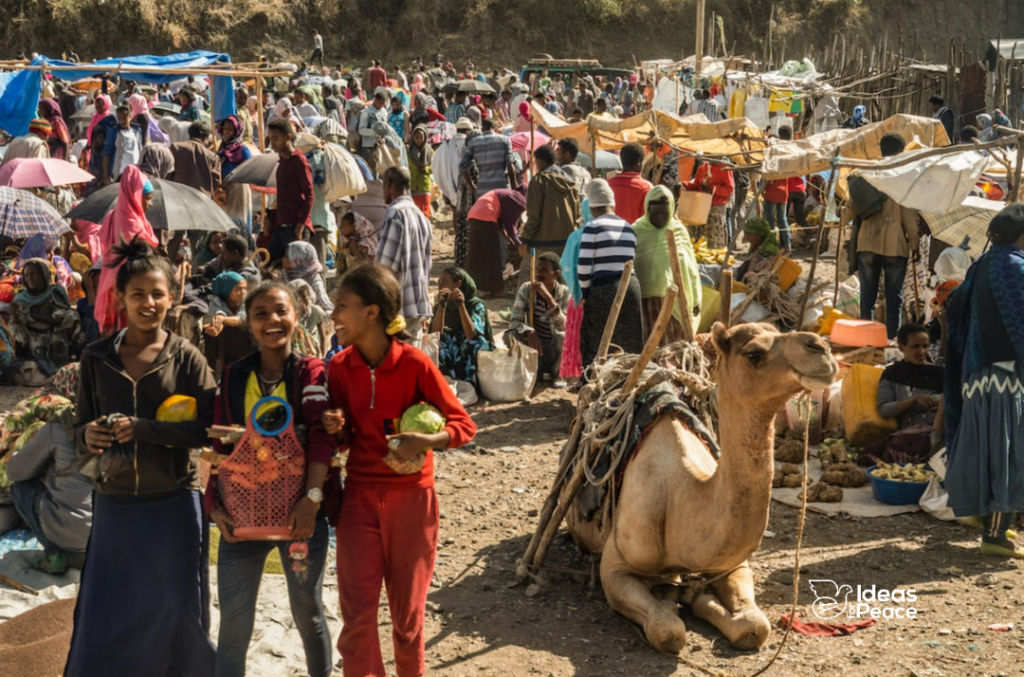Reimagining Sustainable Peace in Tigray: A Transitional Justice Perspective

Reimagining Sustainable Peace in Tigray: A Transitional Justice Perspective Author: Markus Penda Mulandula Angula Published on 5 June 2023 According to Andrews, P. (2015), ‘transitional justice mechanisms are non-judicial bodies set up by governments after armed conflict or internal political violence. These mechanisms usually reflect the compromise reached between warring parties during negotiations to end […]
TERMINANDO CON LA IMPUNIDAD Y BUSCANDO LA RECONCILIACIÓN EN LA REPÚBLICA CENTROAFRICANA: EL ROL DE LA JUSTICIA TRANSICIONAL

La República Centroafricana (RCA) ha estado sufriendo conflictos de larga duración y ahora debe establecer el estado de derecho a través de la Justicia Transicional. La Justicia Transicional sirve para la recuperación de países devastados por conflictos. Las Naciones Unidas describen la Justicia Transicional como “la gama completa de procesos y mecanismos asociados con el intento de una sociedad de aceptar un legado de abusos del pasado a gran escala” (Consejo de Derechos Humanos de la Asamblea General de las Naciones Unidas, 2014) e incluye mecanismos judiciales y no judiciales, como ser el enjuiciamiento de los autores a través del sistema de justicia nacional, internacional o híbrido, y la Comisión de la Verdad y Reconciliación. Entonces, ¿qué tipo de esfuerzos se han realizado para establecer la Justicia Transicional en la República Centroafricana? ¿Qué sistema funciona bien en el contexto de los complejos conflictos de la RCA?
Politics of Transitional Justice Mechanisms from Below: The Case of Somaliland
This paper will discuss how the design and discourse of transitional justice mechanisms- which include and take into account the views and needs of civil society and affected communities- boost the legitimacy of the transitional process and the prospects for reconciliation. This process could be described as the politics of transitional justice mechanisms from below. The paper will focus on the Somaliland situation as a case study.
The paper will explain both the Somaliland alternative dispute resolution (ADR) mechanism and transitional justice as well as analyze in detail how the indigenous ADR mechanism has been used as tool for political transitional justice during the reconciliation period.
Lessons learned from the Somaliland reconciliation process will be briefly explained and some critiques and pitfalls of transitional justice in Somaliland will be raised.
Finally, the paper will conclude with some recommendations and observations about the usefulness of the traditional and indigenous ADR systems as reference examples for political transitional justice in similar situations around the world.
Transitional Justice in Burundi: Expectations and ConcernsTransitional Justice in Burundi: Expectations and Concerns
Vital Nshimirimana discusses the transitional justice process as planned by the government of Burundi for 2012. He argues that issues including ongoing insecurity, human rights abuses, lack of dialogue and trust among social partners, as well as lack of rule of law will undermine the process.Vital Nshimirimana discusses the transitional justice process as planned by the government of Burundi for 2012. He argues that issues including ongoing insecurity, human rights abuses, lack of dialogue and trust among social partners, as well as lack of rule of law will undermine the process.
The Creation of the International Commission against Impunity in Guatemala: Miscalculation by a ‘Corporate Mafia State’?
This paper traces the development of the International Commission against Impunity in Guatemala (CICIG). A UN affiliated hybrid International-National quasi-judicial entity, CICIG was mandated to help investigate and prosecute organized crime groups in Guatemala and was heralded as an important step forward in the fight against impunity. This paper explores the often heard narrative that human rights groups successfully convinced first the Portillo administration and then the Berger government to agree to support CICIG, and analyzes alternative rationales. The paper suggests that the Portillo government sought to derive short term benefits from supporting the agreement but may have miscalculated in its assessment of long term risks. The Berger administration clearly derived benefits from the agreement, including the reinstatement of certain US military aid, as did the Colom administration. The paper also suggests that despite its mandate to strengthen national investigations and the judiciary system, some of CICIG’s greatest successes were achieved through public actions and the eventual resignation of the founding Commissioner Castresana. The paper concludes that even though CICIG’s institutional reform efforts have been piecemeal, they are significant nonetheless.
Transitional Justice in Burundi: Expectations and Concerns
Vital Nshimirimana discusses the transitional justice process as planned by the government of Burundi for 2012. He argues that issues including ongoing insecurity, human rights abuses, lack of dialogue and trust among social partners, as well as lack of rule of law will undermine the process.
Mediators Beyond Borders: Pathways to Peace and Reconciliation
In this timely article, Kenneth Cloke reflects on the potential of mediation to inspire conflict transformation and social development in times of interpersonal as well as international crisis.
Technical aspects of mediation are also discussed, as Cloke draws from his considerable experience in the field, offering practical and accessible advice for the promotion of cooperation and coexistence in our own lives and beyond all borders.
Inclusive Transitional Justice through Truth Commissions: A Book Review
Title: Getting the Truth out of Truth Commissions: Lessons Learned from Five Case Studies
Author(s): Johannes Langer (editor), Miguel Barreto Henriques, Pedro Valenzuela
Publisher: Editorial Bonaventuriana, 2018
